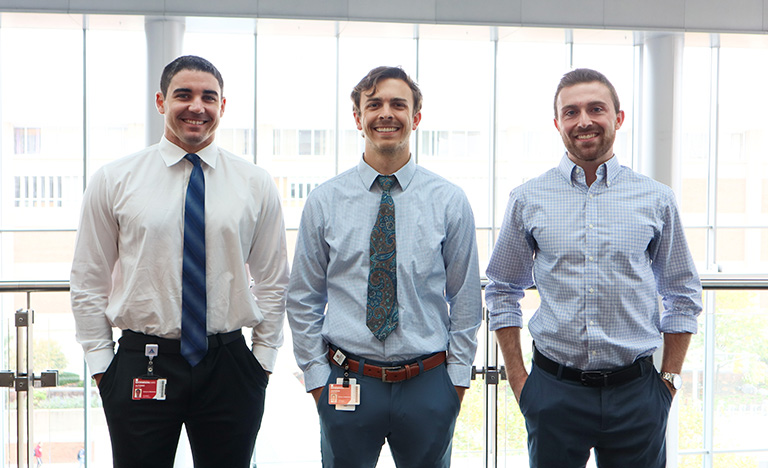Christopher Schorr
When Christopher Schorr was 9 years old, his younger sister was diagnosed pediatric nephrotic syndrome and placed on life-stabilizing dialysis. One of his earliest memories was watching a team of medical staff attempt to fix her kidneys and get her disease under control.
“My sister’s hospitalization is what first made me appreciate medicine,” Schorr said. “I wanted her to get better. The biggest takeaway for me was seeing just how much the physicians and medical staff cared and how hard they worked to figure out exactly what was happening to her.”
In 2016, Schorr attended Purdue University dual majoring in chemical engineering and biochemistry. Among his accomplishments, he performed research in two cancer laboratories, served as founder of Purdue’s Cancer Prevention Initiative, and was involved in the international Genetic Engineering Machine (iGEM) competition.
During his freshman year at Purdue, Schorr worked on an iGEM team to create a novel bacterial proof-of-concept for clinical use. The team accepted his idea to genetically alter E. coli to break down carcinogens in the lungs of smokers, firefighters and victims of accidental inhalations. Commensal bacteria such as E. coli are found everywhere—on desks, in food and even on our skin, he said. Schorr wanted to use these abundant organisms for something good: a way to break down benzene, a common carcinogen in cigarettes and tobacco products.
“My mother made sure I grew up knowing the consequences of smoking. ‘Don’t start,’ she’d say. ‘I regret it.’ I wanted to help. I wanted to do something about cancer,” he said.
His team designed a nine-enzyme benzene-degrading genetic circuit for incorporation into a strain of E. coli. He was the primary contributor to the Java-based mathematical population model that could predict the benzene degradation kinetics in a patient’s lung microbiome. Along with his team, he designed an inexpensive nebulizer to deliver this strain to lungs.
“We presented our results at MIT. That was extremely inspiring, and I thought, ‘Maybe I have a knack for this. Maybe I could use my expertise and knowledge in a good way.’ It’s about the impact I have on others,” he said. “Engineering is extremely impactful because it helps a lot of people in a small way, such as the road you drive on or the shampoo you use. Medicine is the inverse. Physicians interact with fewer people but in a more direct, significant way, helping them feel better.”
Schorr’s aim is to do both as a physician-scientist.
“Our goal should be to maximize the area under the curve that impacts the most people in the most significant way.”
Schorr has made scientific progress in the laboratory during his undergraduate studies. In the Lelièvre laboratory, he worked to better understand chemotherapy resistance in patients with triple negative breast cancer, the most aggressive type of breast cancer. In the Won laboratory, he optimized nanoparticle manufacturing and delivery for head and neck cancers; the results were published in peer-reviewed journals. His lab experience was amplified by his nightly visits volunteering in the hospital.
“I’ll never forget the cancer patients I assisted and how they desperately held onto hope for new therapies to restore their strength, relieve their distress and give them back the lives they once knew,” he said. “Cancer is not just one disease. There are over 200 different cell types in the body, and each can form one or more types of cancer. Normally, our bodies fight off abnormal invaders like parasites, viruses or bacteria. But cancer is an abnormal growth of our own cells, so our immune system’s response is not to attack them.”
Schorr believes one key to fighting cancer is reducing exposure to elements known to increase risk. He describes himself today as “incredibly optimistic” about the future for cancer patients.





